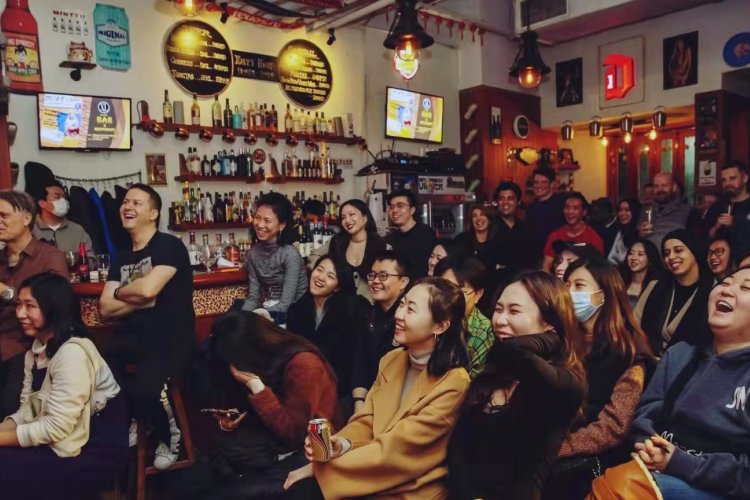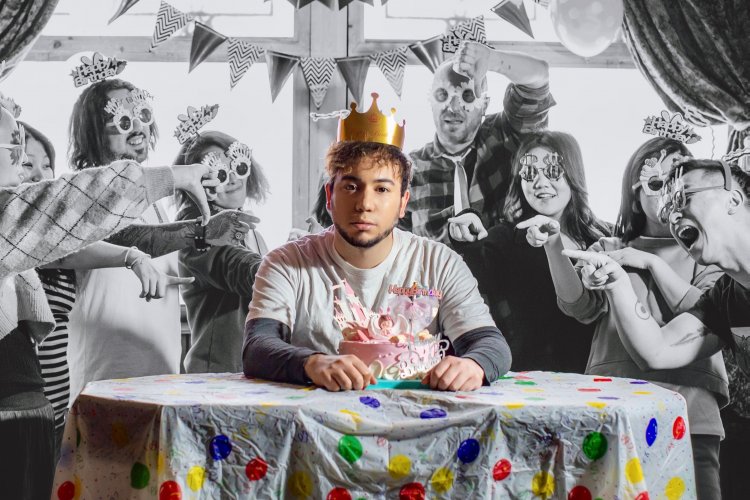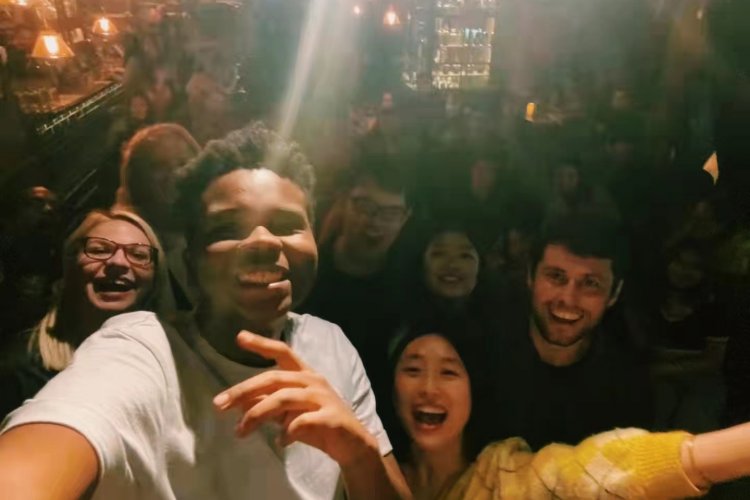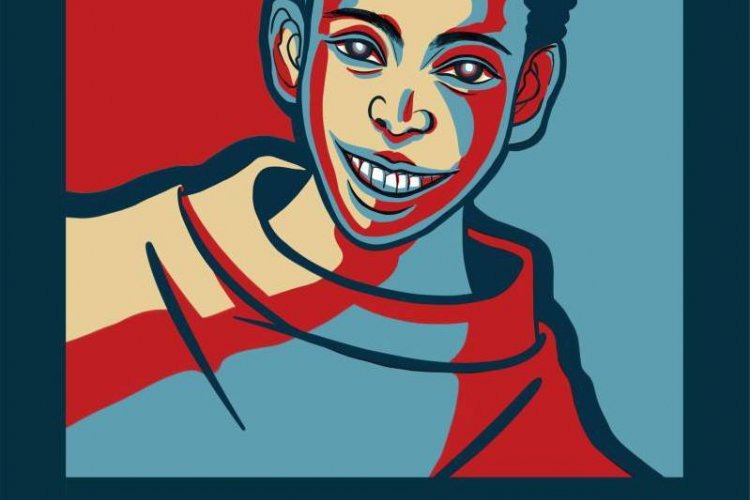Comedian Jorge Castellanos Finds Humor in Being the Eternal Outsider
If you have ever watched one of the Mamahuhu videos that so often make the rounds on WeChat, you may already be familiar with the work of Jorge Castellanos. He regularly writes and performs for the Shanghai-based YouTube channel, which pokes fun at foreigners living in China through the often absurd predicaments we find ourselves in. Now he brings his keen eye for finding humor in expat life (and life in general) to the Beijing stage for his headliner in the Northern Capital. Before he brings the hilarity to The Bookworm this Sunday, we talked with Castellanos about growing up as a Cuban-American and his hand in creating some of the most widely shared videos about expats in China.
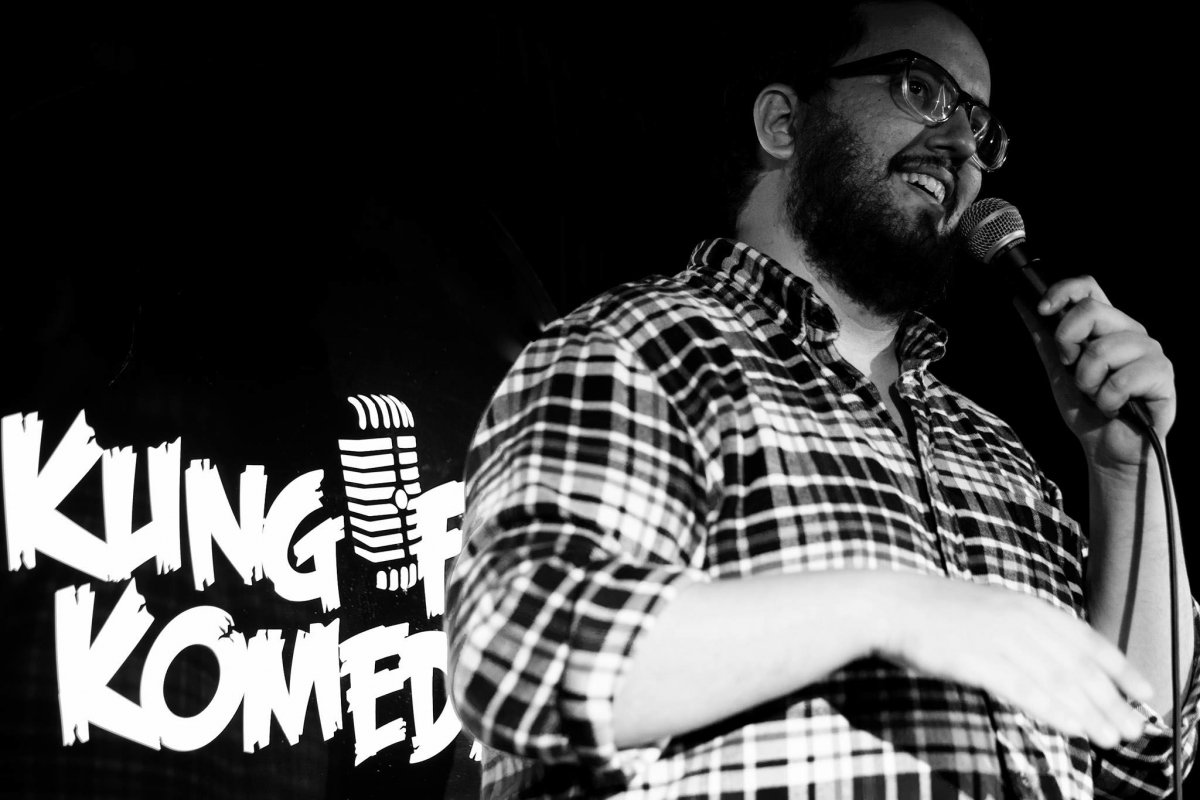
You started doing comedy in China and you’ve performed all over Asia, and even New York, which is one of the greatest havens for comedy in the world. How did that compare to performing in China?
Doing comedy in China is actually a lot like doing it in New York because in both places you have to take a more universal view of things rather than doing these specific references, since the audience is from such a broad spectrum. It’s also true with doing comedy in the rest of Asia, because obviously doing China material does not work so well. It usually still goes pretty well though because the audience is also mostly foreigners.
The Shanghai comedy community is a bit larger than the one here in Beijing. How supportive was the community in helping you to find your place in the comedy scene?
Overall it was somewhat surprisingly supportive. Everyone was nice at all the clubs and as I was doing the open mics. That’s actually one of the things that is very different from New York, where things get very competitive. Here people are actually rooting for you to do well.
Why do you think that is?
I’m not sure why other people do are supportive like that, but I do it at least partly because when other people do well here, it lends credibility to the fact that you’re doing well too. It’s like, they’re doing it here, so I can do it.
You’re a Cuban-American who grew up in Texas, a state where Cuban-Americans are only something like 0.2 percent of the population, so you’re no stranger to the outsider perspective. Has that experience informed your comedy and writing?
Yeah, it kind of has. I’ve got a bit about the irony of the situation that the majority of the hate you get in Texas is actually from other Hispanics, because there are a ton of Mexicans in Texas, and they were more confused about who I was and what I was doing. White people just left us alone, all the bullying was coming from the Mexicans. You know, it’s this kind of weird bullying for being the one from an island nation. You would think that people would try to stick together, but as it turns out it’s very much a separate thing.
You also recently had a show called Extraordinarily Ordinary. Does that name also tie back to your personal experiences?
I came up with that name as a kid, and actually, I always said that if I ever had a show, that’s what I would call it. It’s kind of about how I’m about as regular as they come, and despite coming from a weird past and weird present, I’m also just a completely regular guy wearing a T-shirt and khaki shorts.
I guess you become who you are from the people around you and who you hang around with. I grew up thinking, “I’m just a white kid in America,” and it wasn’t until I was older and looking back that I realized no one else saw it that way. You never notice what everyone else thinks is different about you, you just hang out with who you hang out with. In Texas, my friends never really made fun of me for being different. There, all the jokes were about having a big head. It wasn’t until I moved to Virginia when I was ten or 11 that the name thing began to stick out. "Jorge" is just not as common there, so that’s when being Hispanic began to feel a bit different.
You’re also multilingual, and you talk about code-switching as well as linguistic barriers in your comedy. Is it fair to say that your experiences with language have helped to shape your view of the world?
Yeah, I'd say it has a bit. Especially with opening up to people, and the number of people you can talk to, especially with Chinese people. I actually don’t think I'm very funny in Spanish, and it’s totally different speaking English versus speaking Spanish. There’s just something about how when you speak another language, your personality changes – you almost become a different person. There’s also something weird about how people perceive you, like when a Chinese person does comedy and people say, "Well, he’s not very funny." It’s like, yeah, but he’s doing it in English! Which is very difficult.
You’ve lived in China for almost nine years and in that time you have been involved in some of the most highly produced comedy content about life, and foreigners, in China. You’ve been a writer and performer for Mamahuhu and you created The Shanghai Show. What is it about expat life here that has allowed these shows to become so successful?
I think one of the biggest reasons is that there's a lack of that kind of content, and it’s so much easier to get content out there when no one else is doing it. The other thing is that there’s a clear line, a clear juxtaposition of who I am and who the other people are. Being an expat is kind of different because you are on the outside looking in inside rather than actually partaking.
The last episode of your The Shanghai Show was about a street that used to be popular among foreigners that got shut down, and I think that’s something that resonates with a lot of us in Beijing as well. Do you and other foreigners in Shanghai share the feeling of living in a rapidly changing place and kind of being powerless to stop it?
Yeah, it's a weird thing that comes up a lot here, people actually still talk about that place. Every once in a while someone will say, "Man, I really miss that area."
There's definitely a sense that everything that’s happening is less an idea of "This is what people want," and more just, "This is happening now, and it’s all happening in a whirlwind and we’re going to have to deal with it."
Mamahuhu actually recently did a video too about how all these things are quickly changing, and how you have less of an attachment to stuff living out here. Like with restaurants, you kinda have this progression of, "this is great" to "now it’s not so great" to "oh, now it’s closed." It’s really different from other places, like in my home town there’s a restaurant that’s been there since I was a little kid, and it’s still there. Things just aren’t like that here. Things change a lot more quickly, whether it's restaurants shutting down or people coming and going.
Jorge Castellanos will perform at The Bookworm on August 25 at 8pm. Tickets are RMB 150 or RMB 120 presale. For more information, click here.
READ: "Society Shifts Based on What Comedians Say": Local Performers on the Importance of Diversity
Images: Comedy Club China, Kung Fu Komedy



